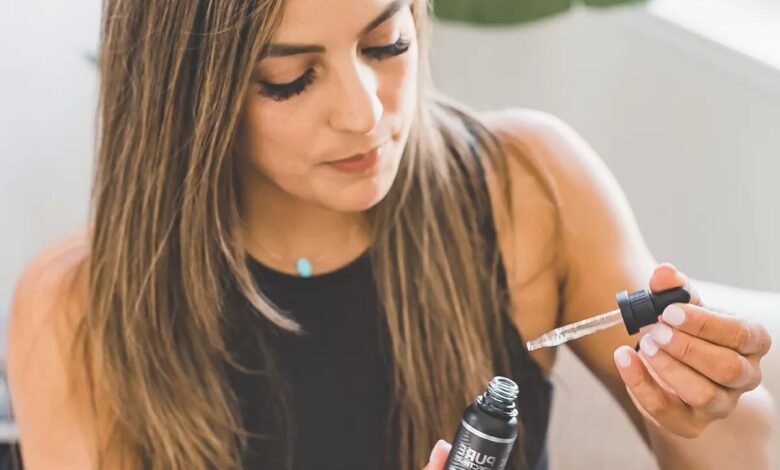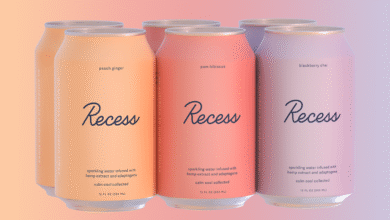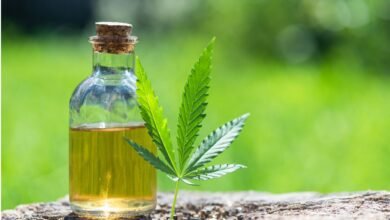How Long Does CBD Stay in Your System?
In this comprehensive guide, we will explore how long CBD stay in your system. especially for those concerned about drug testing or managing dosage.

CBD (cannabidiol) has gained significant popularity for its potential therapeutic benefits, including relief from anxiety, pain, and inflammation. As more individuals incorporate CBD into their wellness routines, understanding how long CBD stays in your system becomes crucial, especially for those concerned about drug testing or managing dosage schedules.
Understanding CBD and Its Interaction with the Body
CBD is a non-psychoactive compound found in the cannabis plant. Unlike THC (tetrahydrocannabinol), CBD does not produce a “high.” It interacts with the body’s endocannabinoid system (ECS), which plays a role in regulating various physiological processes such as mood, pain sensation, and immune response. (Using CBD? Here’s How It Could Affect Your Drug Test, What Is Full-Spectrum CBD?)
The duration CBD stays in your system depends on several factors, including dosage, frequency of use, method of consumption, and individual metabolism. (Does CBD Show Up on a Drug Test? – Healthline)
Factors Influencing How Long CBD Stays in Your System
1. Dosage and Frequency of Use
Higher doses and frequent use can lead to CBD accumulating in the body, potentially extending the time it remains detectable. For instance, a single dose may clear out faster than consistent daily use. (Using CBD? Here’s How It Could Affect Your Drug Test)
2. Method of Consumption
The way CBD is consumed affects its absorption and elimination: (How Long Does CBD Stay in Your System? – Healthline)
- Inhalation (Vaping or Smoking): CBD enters the bloodstream quickly, with effects felt within minutes. However, it may also leave the system faster.
- Sublingual (Tinctures): Placed under the tongue, CBD is absorbed directly into the bloodstream, offering a balance between quick onset and duration.
- Oral (Edibles and Capsules): CBD passes through the digestive system, leading to slower absorption and potentially longer-lasting effects.
- Topical (Creams and Lotions): Applied to the skin, CBD affects localized areas and is less likely to enter the bloodstream in significant amounts. (Using CBD? Here’s How It Could Affect Your Drug Test)
3. Individual Metabolism
Metabolic rate influences how quickly substances are processed and eliminated. Individuals with faster metabolisms may process CBD more quickly than those with slower metabolic rates.
4. Body Composition
CBD is lipophilic, meaning it binds to fat cells. Individuals with higher body fat percentages may store CBD longer, affecting how long it stays in the system.
5. Food Intake
Consuming CBD with food, especially fatty meals, can increase its bioavailability, potentially affecting how long it remains in the body.
Detection Windows of CBD in the Body
While CBD itself is not typically screened for in drug tests, understanding its detection window is essential: (Does CBD Show Up on a Drug Test? – Healthline)
- Blood: CBD is detectable in blood for up to a week after use. (How Long Does CBD Stay in Your System – Stillwater Treatment)
- Urine: CBD may be present in urine for 3 to 30 days, depending on usage patterns. (How Long Does CBD Stay in Your System? | Blood, Saliva, Hair …)
- Saliva: CBD can be detected in saliva for up to 72 hours or more with heavy use. (How Long Does CBD Stay in Your System? | Blood, Saliva, Hair …)
- Hair: Hair tests can detect CBD for approximately 3 months. (How Long Does CBD Stay in Your System? | Blood, Saliva, Hair …)
CBD and Drug Testing
Standard drug tests typically screen for THC, not CBD. However, some CBD products may contain trace amounts of THC, which could lead to a positive test result. To minimize this risk, opt for CBD isolates or broad-spectrum products that are THC-free. (CBD Oil and Drug Test | Detection Times & False Positives, Using CBD? Here’s How It Could Affect Your Drug Test)
Conclusion
The duration CBD stays in your system varies based on multiple factors, including dosage, method of consumption, metabolism, and body composition. While CBD is generally not the focus of drug tests, being informed about product contents and usage patterns is essential. Consulting with a healthcare professional can provide personalized guidance tailored to your needs.









